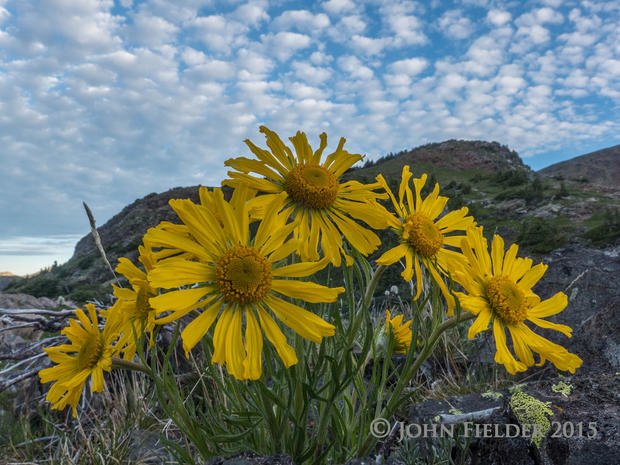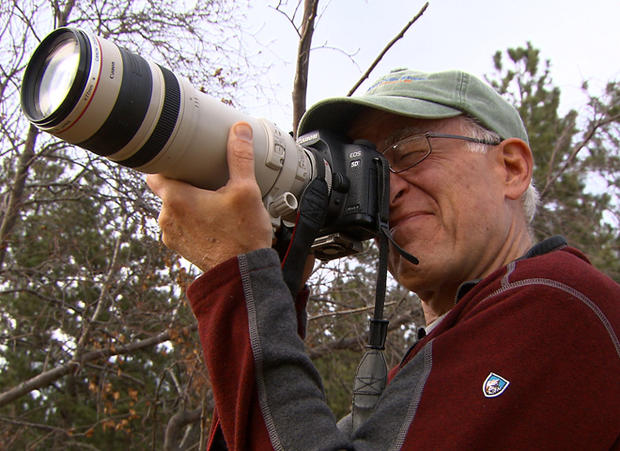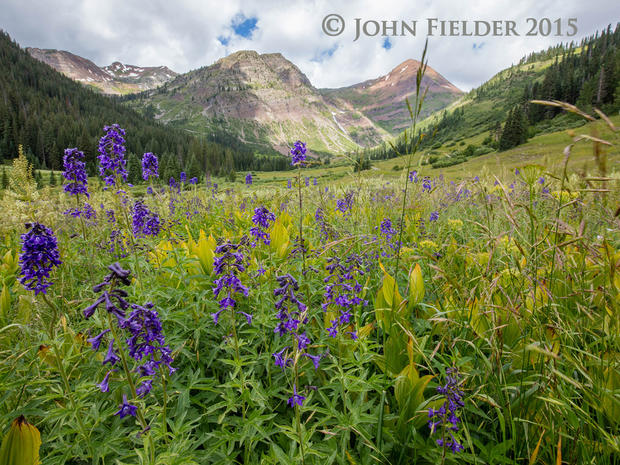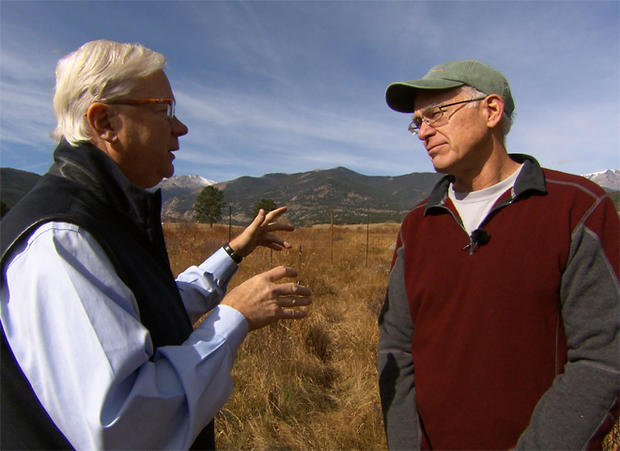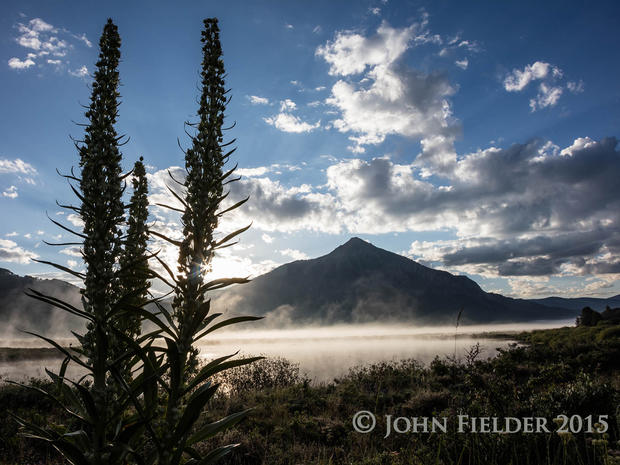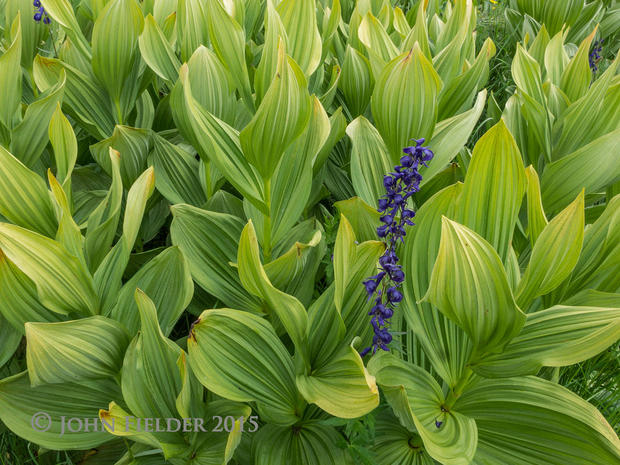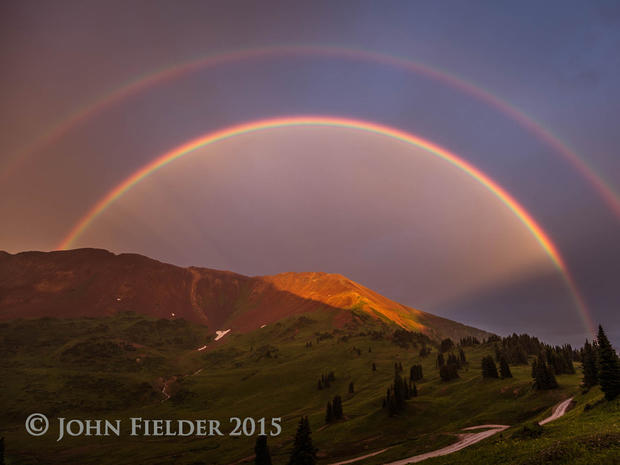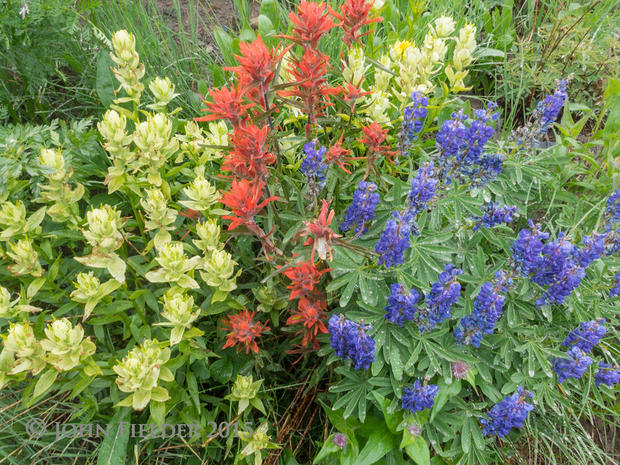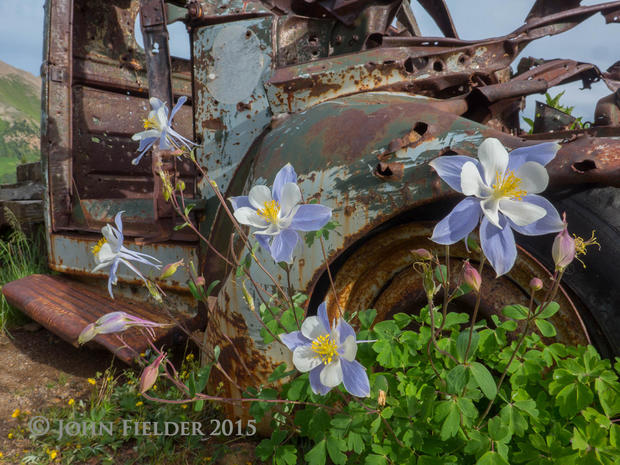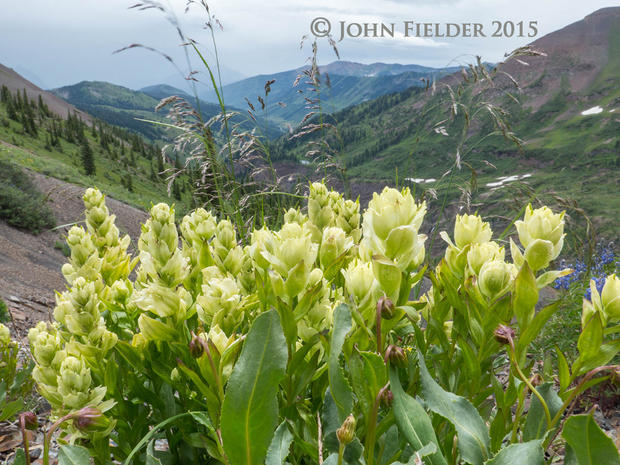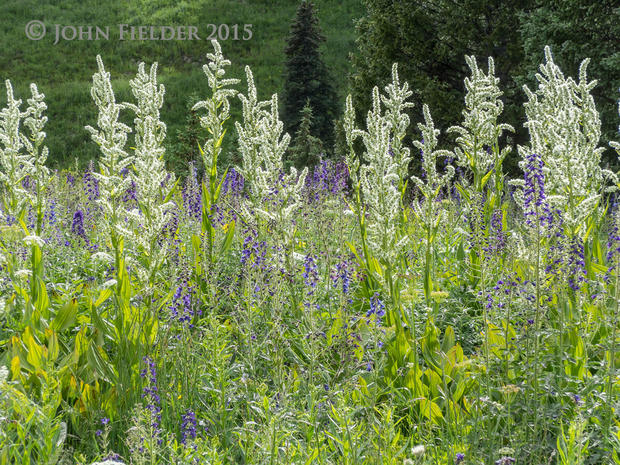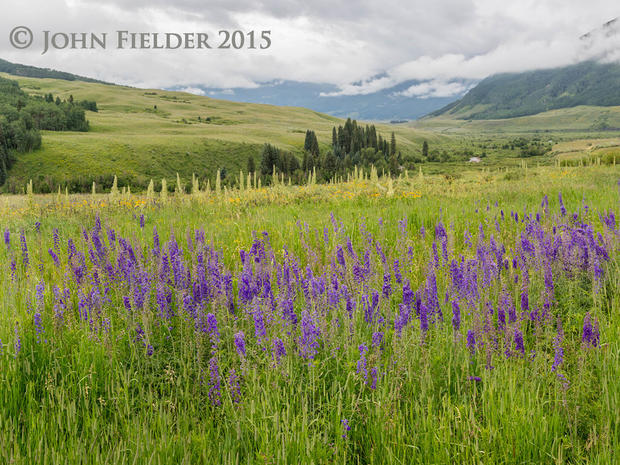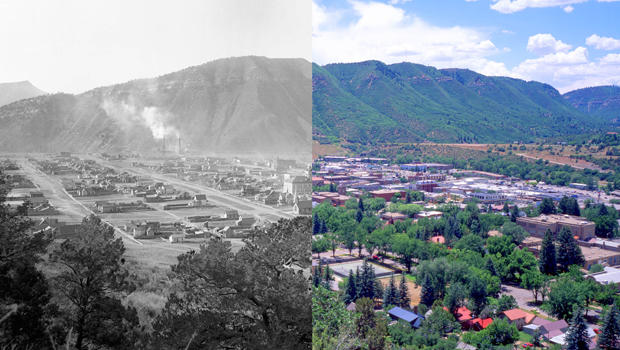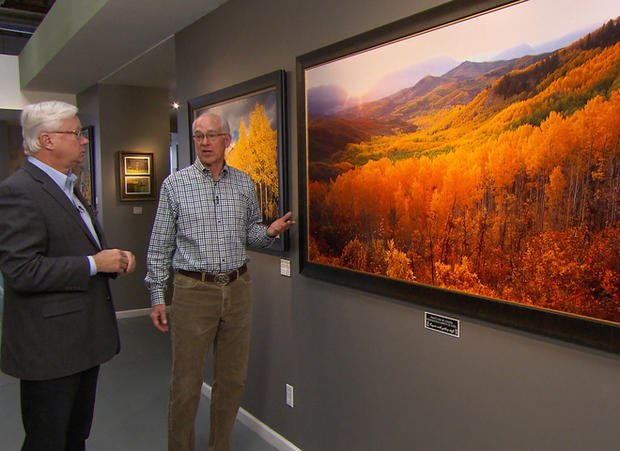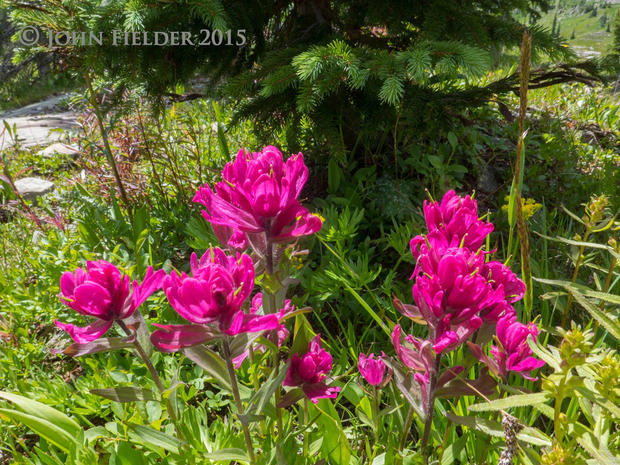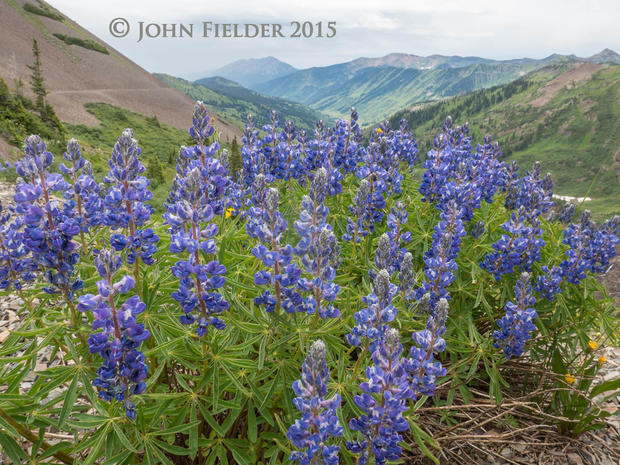John Fielder's Colorado
John Fielder is perhaps Colorado's premier nature photographer. Over the last 40 years, accompanied by llamas packed with camera gear, he has hiked or climbed or crawled looking for the next perfect shot ... capturing Nature's majesty, or man's footprint.
"When I'm alone, I think I can experience, to a deeper degree, the sensuousness of Nature," he said, "not just these views, but again, the sounds and the smells, the taste, the touch of these grasses."
Left: Golden aster.
Shutterbug
"I want to be a part of the community of people that truly care about 4 billion years of the evolution of life on Earth," said John Fielder. "And one of the best ways to share with people how special this is and why it needs to be protected forever is through photography."
Rocky Mountain Splendor
"Mountains are my favorite thing to explore," Fielder said. "And there are probably no more friendly mountains on Earth than the southern Rocky Mountains of Colorado.
"You don't need yaks to take you there for two weeks to get to the trail head. It's not such an extreme environment that your life is at risk most of the time. This is a very usable place, a very friendly place for people from all over the world."
Rocky Mountain National Park
"What is it about the wilderness that pulls you and your camera back over and over?" asked CBS News' Barry Petersen.
"I like being alone, I like the most beautiful places, I like scenery," said Fielder. "And Colorado's as good as it gets.
"I never get tired of being in places like this. It's my medicine, for the time that I do spend in the city. I've been to the park 100 times in the last 40 years. And it gets better, actually, each time that I come here."
Crested Butte, Colo.
"Good photographers are good not because they're good with cameras; they're good because they have a very special relationship with their subject matter," said Fielder.
"There must be a lot of times when you hike long, long ways and you don't come back with anything," said CBS News' Barry Petersen.
"Well, absolutely. It's like anything else: Sometimes you win, sometimes you lose. But this is the evidence of the spontaneity of the whole process. Good photography is two things. Good eye, and being at the right place at the right time."
Wildflowers
Corn lily and penstemon.
Double Rainbow
"Every moment that I'm outdoors is an 'Oh, my!' moment, unless it's 20 degrees below zero, raining like cats and dogs, whatever it takes to make my photography difficult," Fielder laughed. "But even then, that's part of the sensuousness of Nature.
"I actually pray in my tent at night, believe it or not, for bad weather, because it's on the edges of storms that I get my most magnificent, transitory, momentary photographs."
Wildflowers
Wildflowers.
Wildflowers
Left: Columbines.
"After 40 years of doing this, your eye becomes trained to see things that you didn't see 20 years ago. I make better photos, more intimate photos of these places than I made when I first became a photographer. All of my senses are heightened. The experience is far greater now to be in a place like this than it was when I first came here in 1969."
Valley
Blooms with a view.
Wildflowers
Wildflowers.
Crested Butte, Colo.
Wildflowers.
Then And Now
One of Fielder's most famous projects was a century in the making. He found a kindred soul, photographer William H. Jackson, who with his 350 pounds of gear hiked across Colorado in the 1870s, shooting 10,000 pictures along the way. Fielder chose 300 of Jackson's images archived at Denver's History Colorado Center, and then went hunting for the same spots. His resulting book, "Colorado 1870-2000," became a bestseller.
Left: Durango then, and now.
Gallery
John Fielder at his Denver gallery.
Wildflowers
"Nature is challenged more than ever these days," Fielder said. "We've got a warming planet. We soon will have 9 billion people on the planet visiting places like this. We need to protect it. We need advocates. Nature gets protected by laws. Laws get made by elected officials. And unless people truly care about these places, we're not gonna have the laws to protect it in the long run."
Crested Butte, Colo.
"The message is, get outdoors," said Fielder. "Smell it, taste it, touch it, hear it, as well as see it. And then on November 4th or whatever year you're voting for the people that have those values that you have, vote for the right people. Vote for the right issues. And only then will Nature get protected with the laws that are needed to protect Nature forever.
"A little bit of politics for you guys!"
For more info:
"Colorado 1870-2000" and "Colorado 1870-2000 Volume II" by John Fielder
By CBSNews.com senior producer David Morgan
